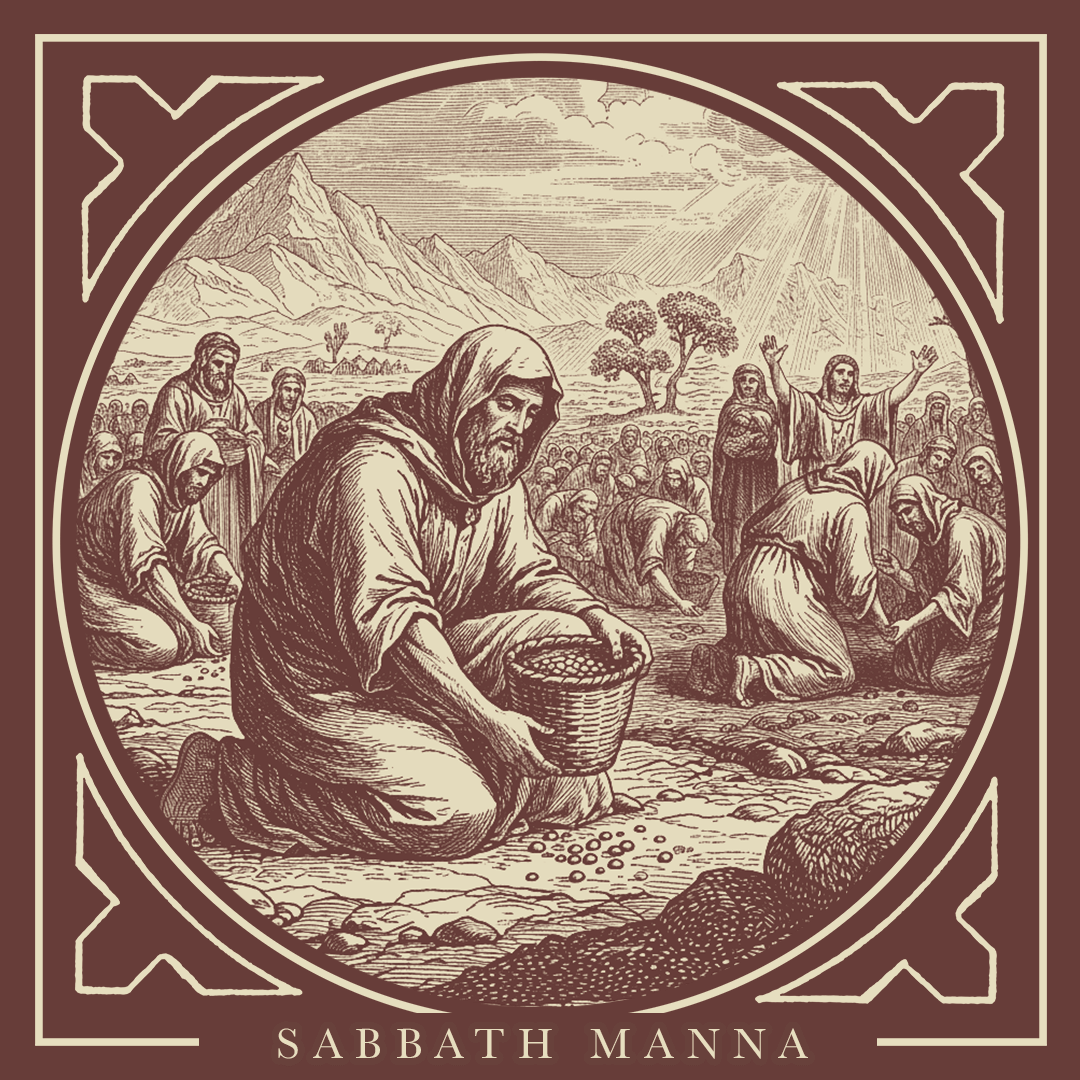
Jesus Our Sabbath Manna
Jesus, the Imperishable Bread of Heaven
Jesus had just fed the five thousand. His disciples then crossed the Lake of Tiberias, and He came to them walking on the water. The next day, when the crowd realized Jesus was gone, they too crossed the lake seeking Him. Why were they looking for Him? Because they perceived that Jesus might be the Prophet like Moses (John 6:14). After all, Jesus had fed Judah supernaturally in the wilderness, just as Moses had fed Israel with manna.
When they finally find Him on the other side of the sea, we read this exchange:
John 6:26–29 Jesus answered them, “Truly, truly, I say to you, you are seeking me, not because you saw signs, but because you ate your fill of the loaves. Do not work for the food that perishes, but for the food that endures to eternal life, which the Son of Man will give to you. For on him God the Father has set his seal.” Then they said to him, “What must we do, to be doing the works of God? Jesus answered them, “This is the work of God, that you believe in him whom he has sent.”
To understand what our Lord means here, we have to think like His Jewish listeners and remember Exodus 16.
The Manna That Perished—and the Manna That Endured
When God fed Israel in the wilderness, manna would spoil if kept overnight. The only exception came on Friday, the day before the Sabbath. On that day alone, Israel could gather double, and the manna would not rot. Every other day, manna was gathered through labor and effort—it perished. But on the Sabbath, the people did no work. They rested and trusted that God would preserve what He had provided. The Sabbath manna was the bread that endured.
Now listen again to Jesus’ words: “Do not work for the food that perishes.” He isn’t merely warning against materialism—He’s pointing His hearers back to the wilderness story. The bread that perishes was the manna gathered by human effort. The bread that endures was preserved through faith in God’s promise. The Sabbath manna, given without labor, was sustained by divine faithfulness.
Think it over: the food that does not perish endures to eternal life. If Jesus is speaking of manna as a type—and I believe He is—He’s not speaking of the literal Sabbath manna. It’s not as though that physical bread endures to eternal life. Rather, the work of faith, resting in YHWH’s work, is the food that endures to eternal life.
The True Work of God: Faith
When the crowd hears this, they respond just as their ancestors did in Exodus—confused. “What must we do, to be doing the works of God?” In other words, “What kind of work earns this imperishable bread?”
Jesus’ answer turns their question upside down:
“This is the work of God, that you believe in Him whom He has sent.”
The irony is rich. They ask what work to perform, and Jesus says the only work God desires is faith. Believing is the true Sabbath work—it is the act of resting in divine provision. Faith is the posture of trust that receives what human striving never could. Just as Israel rested on the Sabbath and found their bread preserved, believers rest in Christ and find their lives sustained.
Jesus then makes His claim clear: the fish and the loaves are not Manna 2.0. He Himself is the Sabbath manna from heaven that never perishes.
John 6:35–36 Jesus said to them, “I am the bread of life; whoever comes to me shall not hunger, and whoever believes in me shall never thirst.
But I said to you that you have seen me and yet do not believe.”
Jesus, the Sabbath Manna
Every layer of this narrative points to Jesus as the imperishable Sabbath manna—the bread that never spoils. He is received not through toil, but through trust.
He was born in Bethlehem, the House of Bread.
He is the incorruptible One of Psalm 16:10—“You will not let your Holy One see corruption.”
He gave Himself on a Friday—the very day Sabbath manna was given—so that His people might rest in His finished work.
Just as the wilderness manna, a flaky pastry that tasted like honey, gave Israel a foretaste of the Promised Land flowing with milk and honey, so Jesus gives believers a foretaste of the age to come. He is heaven’s provision for those wandering in the desert of sin and death.
The Bread That Satisfies
Every earthly pursuit—success, pleasure, possessions—is perishable bread. It spoils when you try to store it, and it cannot sustain the soul. But the bread Jesus offers endures forever. It satisfies the hunger of the heart and quenches the thirst of the spirit.
He calls out to the restless and the weary: “Come to Me, and I will give you rest.” Faith in Him is the true Sabbath—ceasing from the anxious labor of self-righteousness and resting in the finished work of the Son.
Becoming What We Eat
When we feed on this bread by faith, we are transformed by it. Like iron placed in a flame, we begin to take on the qualities of the fire. We share in His incorruptibility, His holiness, His joy. The imperishable bread makes the eater imperishable.
So when Jesus says, “Do not work for the food that perishes,” He is not merely warning us about worldly pursuits—He is unveiling a mystery of redemption. He is the true manna, the Sabbath rest of God made flesh. The only “work” left to do is to believe.
Visit our home page: KingsFellowshipChurch.com
1001 Tipton Terrace, Ada, OK, United States, Oklahoma
